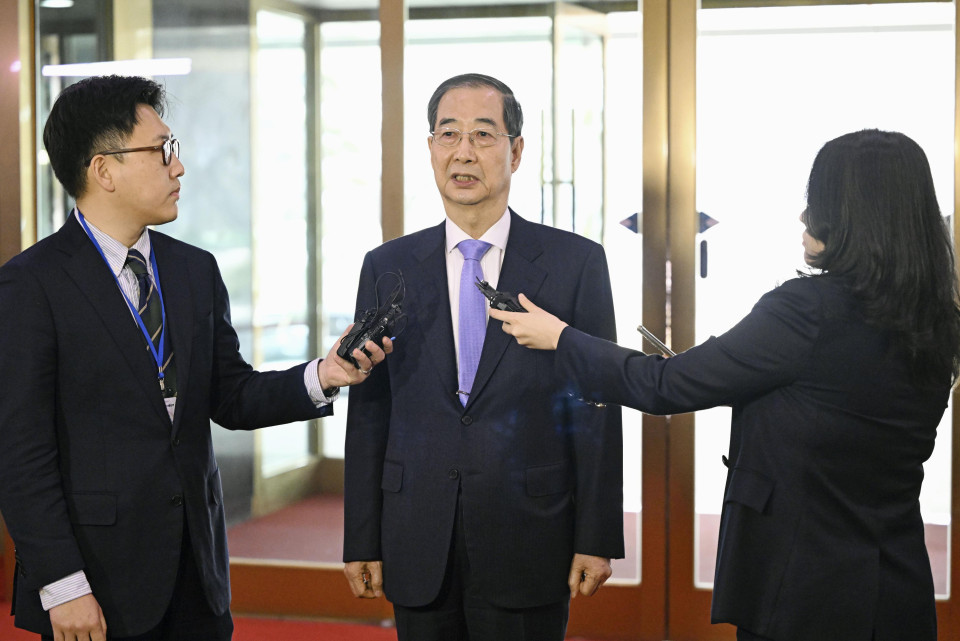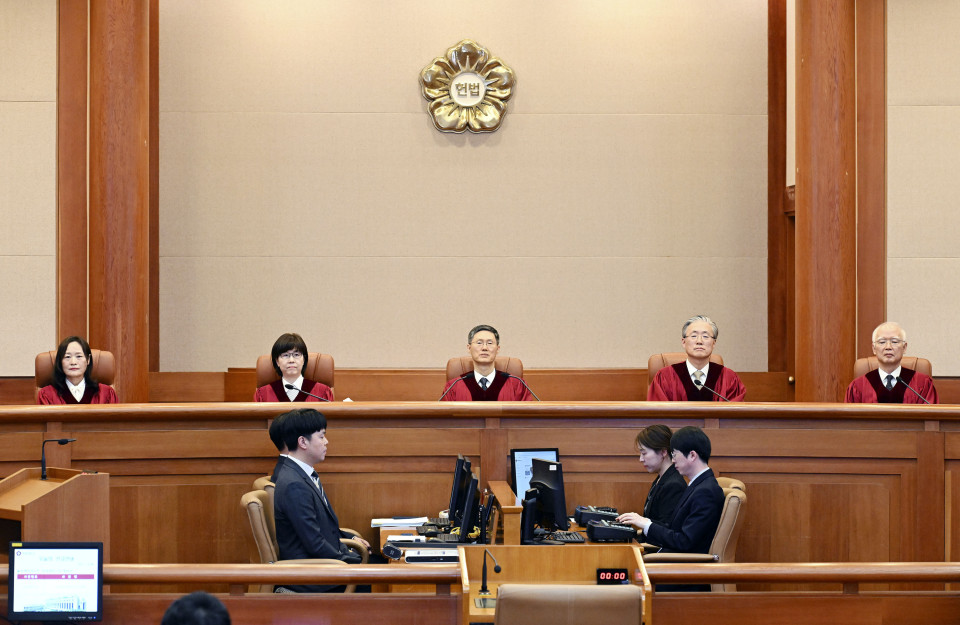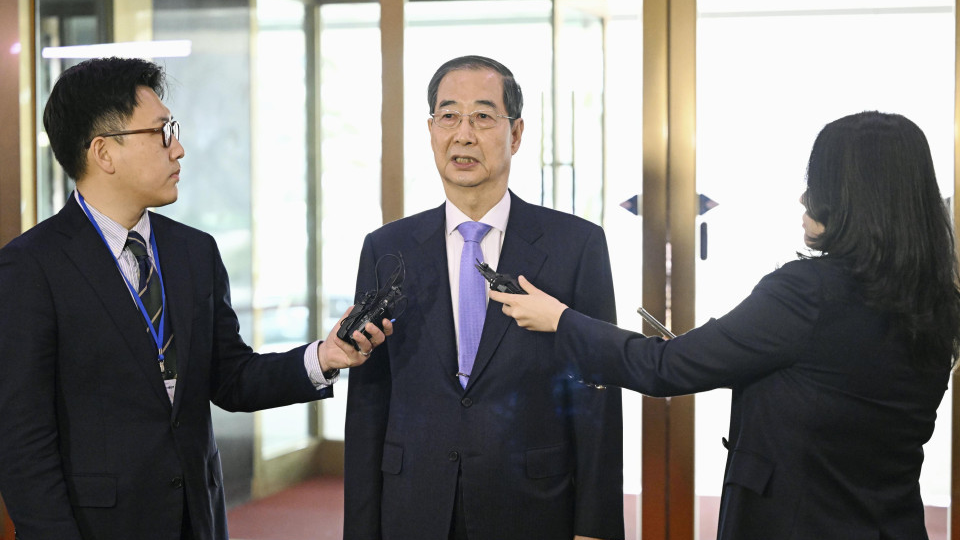South Korea’s Constitutional Court on Monday dismissed a parliamentary motion to impeach Prime Minister Han Duck Soo over his alleged tacit approval of President Yoon Suk Yeol’s brief imposition of martial law in early December.
Han was immediately reinstated as prime minister and acting president. His authority had been suspended since the National Assembly passed the motion to impeach him on Dec. 27, nearly two weeks after it passed a motion against Yoon over his Dec. 3 declaration of martial law.
After returning to office, Han expressed his appreciation for the court’s decision and said, “As acting president, I will devote myself fully to the stable management of state affairs in accordance with the Constitution and the law.”

South Korean Prime Minister Han Duck Soo (C) meets the press in Seoul on March 24, 2025, after the Constitutional Court earlier in the day dismissed a parliamentary motion to impeach him over his alleged tacit approval of President Yoon Suk Yeol’s brief imposition of martial law in December 2024. (Kyodo)
Seven of the current eight justices at the court struck down the impeachment motion, with five dismissing it and two voting to reject the motion itself.
Six justices, including the one who upheld the impeachment motion, said there was no evidence that Han took proactive action to provide legitimacy for Yoon’s declaration of martial law.
The main opposition Democratic Party submitted the impeachment motion against Han while he was serving as acting president, following Yoon’s suspension from his presidential duties over the martial law decree.
As grounds for the motion, the party also cited Han’s refusal to appoint justices to the court despite vacant seats ahead of Yoon’s impeachment trial, Han’s refusal to approve bills for investigations into Yoon’s brief imposition of martial law and corruption allegations against the president’s wife.

Photo shows judges at the impeachment trial of South Korean Prime Minister Han Duck Soo at the Constitutional Court in Seoul on March 24, 2025. (Kyodo)
With regard to Han’s refusal to appoint justices, five of the eight determined that he acted against the law but four said the illegality did not justify his removal from office.
While Han refused to appoint three justices when the nine-seat court was down to six, Deputy Prime Minister Choi Sang Mok, who became acting president after Han’s impeachment, appointed two of the three in late December.
The court is expected to rule on Yoon’s impeachment or reinstatement later this month.
Meanwhile, another South Korean court on Monday held its second preparatory hearing for a criminal trial of Yoon on insurrection charges in connection with his declaration of martial law, setting April 14 as the date of the first hearing.
Related coverage:
South Korean President Yoon freed after 52 days in detention
Acting South Korea president hopeful for “new chapter” with Japan
South Korean President Yoon indicted for insurrection over martial law
